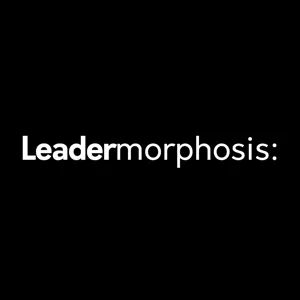Podcast Summary
The Importance of Trust and Communication in Effective Teams: Building great teams requires trust, effective communication, and a shared goal. Teams that foster a positive and supportive environment can tap into a state of flow where tasks are completed effortlessly.
Effective teams thrive on trust and communication. When team members genuinely like and trust each other, they are more likely to work in sync and accomplish tasks effortlessly. On the other hand, teams that lack trust and suffer from constant conflict experience low productivity and morale. Building great teams requires understanding the science of teamwork and avoiding common errors in team construction. Psychologist Anita Williams Woolley highlights the importance of observing both successful and unsuccessful teams to uncover the secrets of team dynamics. By fostering a positive and supportive team environment, teams can tap into a state of flow where time flies and tasks are completed smoothly. Ultimately, the key to building great teams lies in cultivating trust, effective communication, and a shared goal.
The Importance of Collaboration and Inclusivity in Effective Teamwork: Teamwork goes beyond individual skills; coordination, collaboration, and inclusivity are essential for success and to avoid failures.
Effective teamwork requires more than just individual knowledge and skills. It is essential for team members to coordinate their inputs and work together seamlessly. Anita Woolley's experiences in the restaurant industry and in the military shed light on the importance of collaboration and inclusivity in teams. In the restaurant, neglecting customer feedback and not considering their preferences can lead to negative outcomes, such as customers questioning the safety and quality of the food. Similarly, in the military training exercise, disregarding the capabilities and ideas of certain team members resulted in a disastrous outcome. Richard Hackman's research further emphasizes that successful teams go beyond individual expertise and focus on coordinated efforts. By recognizing the value of teamwork and fostering effective collaboration, teams can achieve better outcomes and avoid potential failures.
The Importance of Collaboration and Active Contribution in Teamwork: Success in team dynamics relies on effective collaboration and active contribution from all team members, going beyond individual brilliance. Ignoring this can lead to negative consequences.
Assembling a team of highly intelligent and accomplished individuals does not guarantee success. The assumption that putting brilliant people together will result in a brilliant team is far from accurate. Research has shown that effective collaboration and teamwork go beyond the capabilities of individual team members and even the leader. It is crucial for team members to actively contribute and collaborate with each other for optimal results. This finding challenges the conventional wisdom and highlights the importance of recognizing the complexities of human behavior in team dynamics. The consequences of not understanding these complexities can have far-reaching impacts, both in office settings and in critical situations like the botched invasion of Cuba by the team of superstars in the 1960s.
The Importance of Teamwork and Communication in Preventing Disasters: Effective teamwork and open communication are crucial in preventing major disasters, as they allow for the identification of hidden threats and the development of effective prevention strategies.
Effective teamwork and communication are crucial in preventing major disasters and achieving successful outcomes. Whether it's the failed invasion attempt in Cuba, the space shuttle Challenger explosion, or preventing terrorist attacks, the importance of coordination and collaboration among team members cannot be overstated. In all these cases, brilliant individuals with valuable insights failed to work well together and share crucial information, leading to detrimental consequences. Pressures and motivations to move forward or prove results often overshadowed the need for open dialogue and consideration of opposing viewpoints. However, when teams adopted a creative and collaborative approach, as observed in the Project Looking Glass exercises, they were able to identify hidden threats and devise effective prevention strategies. Ultimately, teamwork and open communication are essential in achieving desired outcomes and preventing major disasters.
The Importance of Collaboration and Effective Communication for Team Success: Collaboration and effective communication are vital for both individual teams and larger organizations, as seen in the consequences of failed collaboration in the 9/11 attacks. Teams must harness their collective intelligence and diverse abilities to solve complex problems.
Collaboration and effective communication are essential for successful teams and organizations. The failure to connect the dots and share information can lead to major consequences, as seen in the 9/11 attacks. This problem of collaboration exists not only at a large scale, but also at the micro level within individual teams. Individuals often prioritize their own agency's goals and identity, hindering the ability to work together effectively. In order to understand the dynamics of teamwork, researchers conducted tests that measured the collective intelligence of teams. Just as individuals have an IQ, groups can also have an IQ. This concept recognizes that teams must combine their different strengths and approaches to solve complex problems. Ultimately, fostering collaboration and utilizing the diverse abilities of team members is crucial for team success.
The Power of Collective Intelligence: A team's success is not solely determined by individual intelligence or personality traits, but rather by the collective intelligence that emerges when individuals work together.
The effectiveness of a team does not solely rely on individual intelligence or specific personality traits. Researchers have discovered that there is a separate capability that emerges when individuals work together, which they call collective intelligence. This collective intelligence is not dependent on the intelligence or personality of the individual members. Surprisingly, even though individual intelligence and certain personality traits can have some impact on team performance, they do not play a major role in determining the overall effectiveness of a team. Additionally, factors such as cohesion, satisfaction, liking, and self-reported motivation do not consistently correlate with team success. This suggests that there are other factors at play that contribute to the effectiveness of a team, which researchers are still working to uncover.
The misconception of team cohesion and its impact on performance.: Building strong relationships within a team does not guarantee better performance. Team effectiveness is influenced by various factors, and our intuition may not always align with actual evidence.
The assumption that team cohesion and liking each other leads to better performance is not supported by the evidence. While it may be true that some teams work well together and have strong relationships, it is not always the case. The idea that building teamwork and relationships as a foundation for productive teamwork is not necessarily accurate. Winning and success can often create the perception of strong cohesion, but it is not the cause of it. Teams are complex adaptive systems with various factors at play, and the human mind often simplifies these dynamics. Therefore, our intuition about what makes a team effective may not always align with the actual evidence.
The Power of Gender Diversity in Teams and Social Perceptiveness in Effective Teamwork: Gender-diverse teams with a majority of women tend to have higher collective intelligence, and successful teams actively pay attention to and respond to each other's thoughts and feelings.
The composition of teams plays a crucial role in their effectiveness. Contrary to popular belief, individual intelligence and a sense of cohesion and camaraderie are not always indicators of a great team. Interestingly, research has shown that teams with a majority of women tend to exhibit higher levels of collective intelligence. However, it's important to note that the best teams are not exclusively comprised of women. Instead, teams that are gender diverse but have a majority of women tend to be the most collectively intelligent. Additionally, an important aspect of effective teamwork is social perceptiveness, which involves picking up on subtle cues and anticipating the thoughts and feelings of others. Ultimately, successful teams are those that actively pay attention to one another and respond accordingly.
Enhancing Collective Intelligence through Equal Participation and Effective Collaboration: By promoting equal participation, reducing dominance, and fostering effective collaboration, groups can optimize their collective intelligence and achieve better outcomes.
Collective intelligence in groups is fostered by equal participation and collaboration. When one person dominates the conversation or when contributions are unequal, collective intelligence is reduced. Additionally, the use of video platforms like Zoom can disrupt synchrony and sentiment, leading to decreased collective intelligence. Video conferences can also result in certain individuals dominating the conversation. Moreover, the lowest scoring member in social perceptiveness can have a significant negative impact on the team's collective intelligence. It is important for team members to pay attention to social cues and collaborate effectively. Furthermore, awareness of what other people know and utilizing transactive memory can contribute to collective intelligence. By optimizing equal participation, reducing dominance, and fostering effective collaboration, groups can enhance their collective intelligence.
The importance of stability and longevity in teams: Teams that work together for an extended period of time can establish shared systems for coordination and organization, leading to improved outcomes. Introducing new members too frequently can hinder the team's ability to learn and improve together.
Teams can benefit from stability and longevity. Research has shown that teams that work together for a good period of time can develop shared systems for organizing and coordinating, such as a transactive memory system. These shared systems allow team members to specialize in different aspects of their work, leading to better outcomes. Introducing new members too often can disrupt these processes and hinder the team's ability to learn and improve together, especially when learning something new. Medical teams, for example, have been found to have better patient outcomes when they maintain stability and continuity. So while fresh blood can bring new perspectives, teams also need time to develop and refine their collaborative processes for optimal performance.
Enhancing Collaboration and Communication for Effective Teamwork: Successful teamwork relies on individuals respecting and valuing each other's capabilities, being willing to rely on others, asking questions, exchanging information, and engaging in open dialogue.
Teams and collective intelligence are not simply the sum of individual abilities or skills. Instead, successful collaboration and coordination rely on individuals respecting and valuing each other's capabilities. This means being willing to rely on others and admit when assistance is needed, as well as asking questions to clarify objectives and consider alternative approaches. The exchange of information and open dialogue are crucial for effective teamwork. This concept applies not only to professional settings but also to personal interactions, communities, and even nations. By recognizing the importance of collaboration and communication, we can improve our ability to work well with others and achieve our collective goals.






